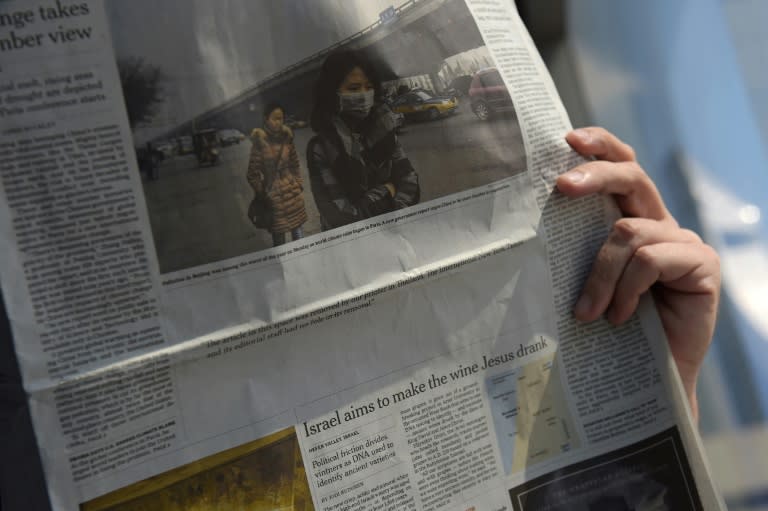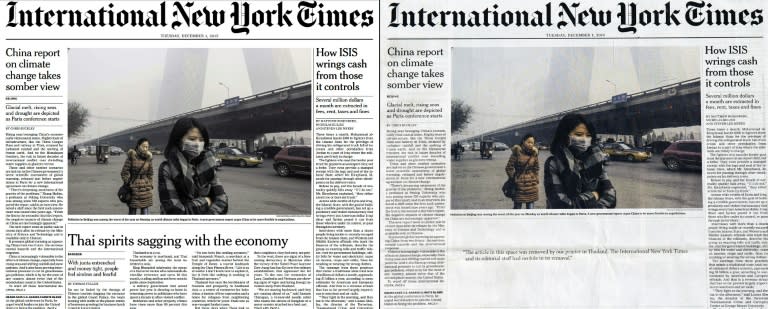Blank spaces replace NYT article on flagging Thai economy
The International New York Times said its printer in Thailand removed an article on the moribund state of the kingdom's economy Tuesday, forcing the edition to carry blank spaces including on the cover. It was the second time in 10 weeks that the paper has said its local printer declined to run an article, in a country where media freedoms have been increasingly curtailed since last year's military takeover. Tuesday's newspaper was supposed to run a report headlined "Thai economy and spirits are sagging" that explored the junta's inability to jump-start the flagging economy. It also touched briefly on succession concerns surrounding 87-year-old King Bhumibol, the world's longest serving monarch who is revered but ailing. Instead chunks of the front page and page six were blank and carried the sentence: "The article in this space was removed by our printer in Thailand. The International New York Times and its editorial staff had no role in its removal." A spokeswoman for the paper gave the same reply when asked for comment by AFP. Eastern Printing PCL, the paper's Thai printer, did not comment on why it pulled the piece when contacted by AFP. The article was still accessible online in Thailand. - Media clampdown - On September 22 Eastern Printing failed to publish the entire newspaper because the Asia edition featured a detailed front-page article on the health of King Bhumibol, a hugely controversial topic in Thailand. That story also discussed anxieties over the succession. Crown Prince Maha Vajiralongkorn, who does not enjoy his father's widespread popularity, is next in line for the throne. The monarchy is shielded by one of the world's toughest lese majeste laws and prosecutions have surged since the military coup. The media routinely self-censors when reporting on the monarchy for fear of falling foul of the broadly-worded law, which carries up to 15 years in jail for each count of insulting the king, queen, heir or regent. Tuesday's piece was centred on the stuttering economy in Thailand, which has one of the lowest growth rates in Southeast Asia. The country is blighted by high household debt, low consumer confidence and disappointing exports. Since toppling a democratically elected government in May 2014, Thailand's generals have stamped down on critical media. But some criticism does take place. On Tuesday English-language newspaper The Nation ran a rare editorial strongly criticising the lese majeste law. "The law is clearly not being applied equitably or in the spirit with which it was promulgated," the paper said, adding it was "too often abused for political ends". The editorial came as a court on Tuesday sentenced a 60-year-old man to six years in prison on a lese majeste charge for distributing pamphlets at a rally eight years ago. In 2005 King Bhumibol said in a landmark speech that even he was not above public criticism. Last month the International New York Times said it would cease printing in Thailand altogether by the end of the year, citing rising production costs.



